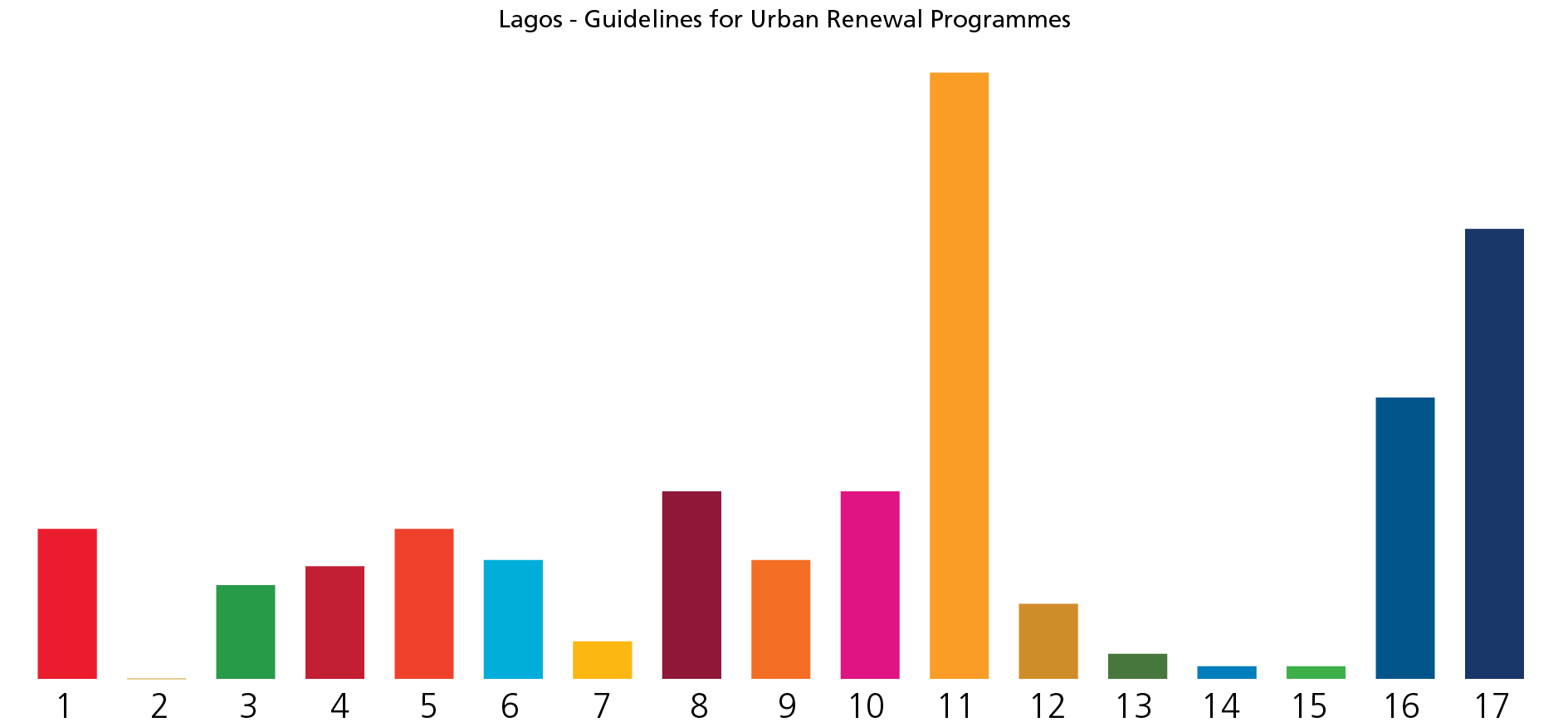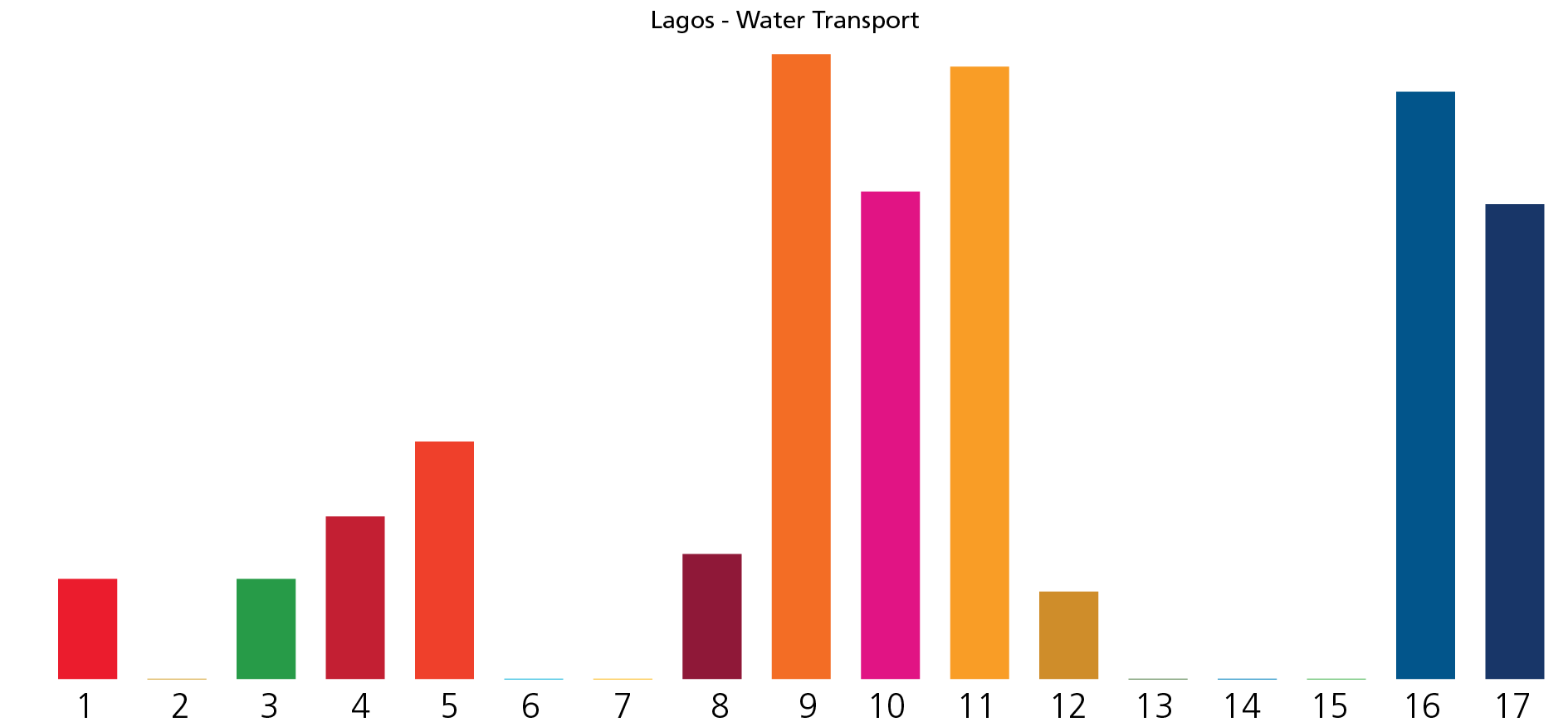Overview
Lagos is the largest urban agglomeration in Nigeria and one of the biggest and fastest growing megacities in the world, with population estimates ranging from 12 to over 20 million people. The built-up area is situated along the banks of the western portion of Lake Lagoon and expands to the north, following the expressway to Abeokuta and Ibadan. Although the urban extension is mainly contained within the administrative boundaries of Lagos State, the city has begun to stretch beyond its borders, expanding in the direction of the main transport routes into Ogun State. The lack of a metropolitan government body that could mediate between the two states and the various Local Government Authorities, creates a critical void between urban development and city management. Lagos serves as the services and financial centre of the country and is the location of one of the main ports on the African continent. It is the main industrial hub of Nigeria and contains one of the more dynamic informal markets in the country. Lagos generates the highest internal revenue in Nigeria. However, the urban environment does not match this economic success. Constant and rapid urban expansion has caused a continuing growth of slums and unplanned settlements, with extremely limited access to basic infrastructure and services. The city is subject to enormous challenges, from increasing traffic and consequent congestion and pollution to climate change threats. Floods and coastal erosion have caused a decline in water quality, the destruction of drainage infrastructure, and an increase in water and vector borne diseases. The two identified projects are: (i) Guidelines for Urban Renewal Programmes in Lagos, and (ii) a support to develop Water Transport in Lagos.
Highlighted Publication

Lagos City Context Report
Download Document
Challenges
Projects
1 Guidelines for Urban Renewal Programmes
View DetailsRapid urbanization, poverty, inadequate urban housing supply, lack of enforcement of urban development and management regulations by city authorities, and the lack of repairs and housing maintenance are all factors that have created disorganized, overcrowded, dilapidated, and blighted areas, including slums. These urban slums are characterised by uninhabitable living conditions with poor land use planning and inadequate social services that are coupled with high levels of transmissible diseases and increased exposure to outbreaks of natural disasters such as fires and floods. There is a dire need to redevelop these slums and provide structurally sound housing and adequate infrastructure. The delivery of urban renewal programmes and, consequently, reaching the official 5% annual slum reduction quota, appears to be both challenging and limiting due to insufficient funding and inadequate community engagement. Projects are managed on a case-by-case basis, without a designated set of tools and methods. The objective of the project is to provide technical assistance in developing guidelines for urban renewal and slum upgrading projects in Lagos State. The aim of these guidelines is to strengthen the local and state governments as well as the local communities.
Project Timeline
-
Charrette
September 2018 -
Validation Workshop
November 2018 -
MoU signing
December 2019 -
Kick-off Meetings
December 2019 -
SDG Project Assessment Tailoring Workshop
February 2020 -
First SDG Assessment Session
July 2020
SDG TOOL

2 Water Transport
View DetailsAs one of the world’s largest megacities, Lagos faces challenges in the fluctuation and movement of people. Traffic congestion impacts the quality of life of many of the city’s residents, and if no measures are taken, traffic will continue to increase over the next few years. Mobility and the mitigation of traffic congestion is a key challenge for the future of Lagos. Substantial infrastructure improvements have been proposed in an effort to reduce traffic congestion and its negative consequences. The Lagos State Government has embarked on an ambitious programme of policy reforms and investments to promote and facilitate the provision of water transport. The aim is to turn water transport into an attractive option within Lagos’ integrated urban transport system. The project will support this ambition by providing technical assistance that can be catalytic in the establishment of the water transport sector in Lagos.
Project Timeline
-
Charrette
September 2018 -
Validation Workshop
November 2018 -
MoU signing
December 2019 -
Kick-off Meetings
December 2019 -
SDG Project Assessment Tool Tailoring Workshop
February 2019 -
First SDG Assessment Session
July 2020
SDG TOOL

